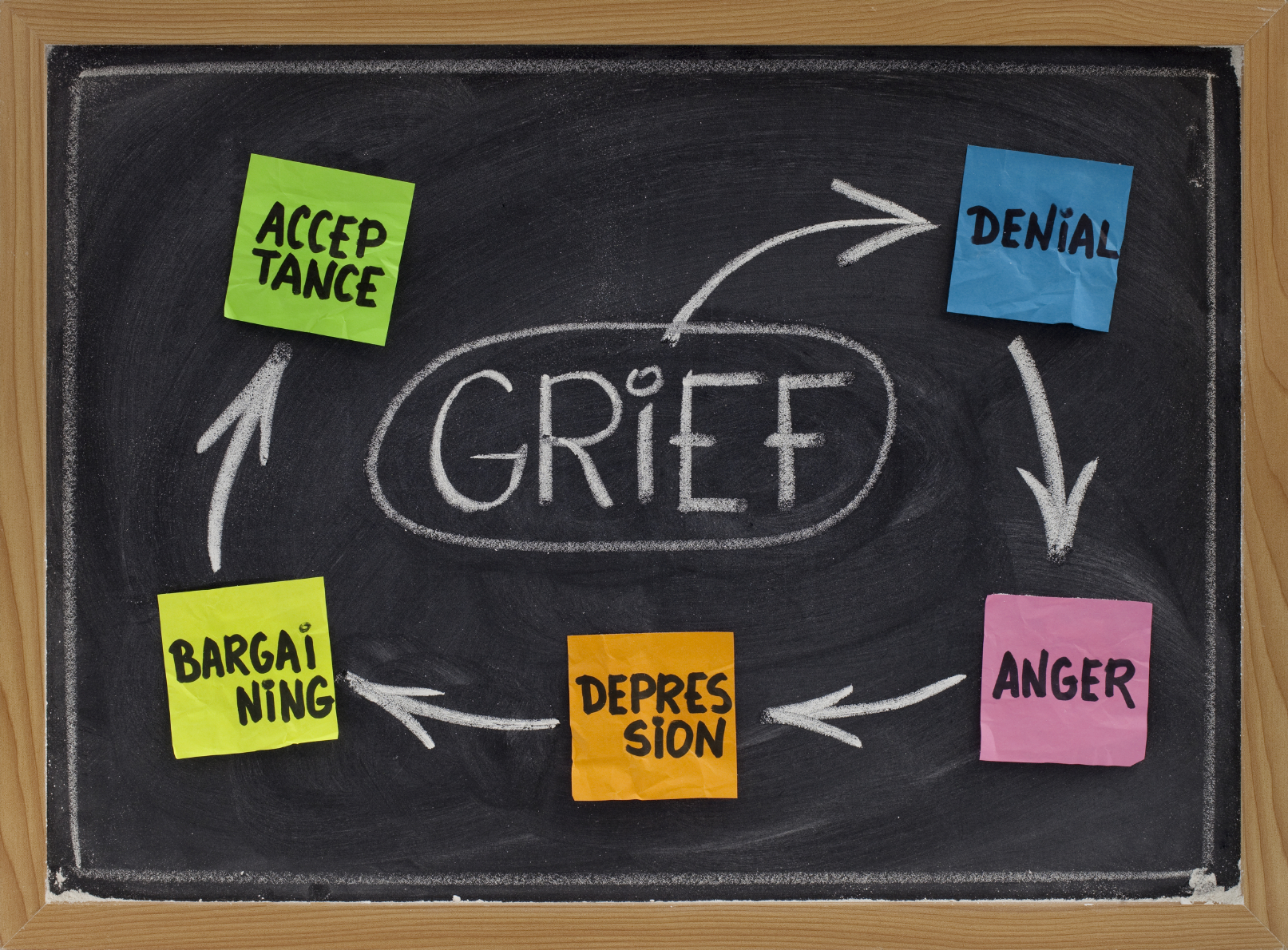The Five Stages of Divorce
 Many people liken the end of a marriage to a death, and, in many respects, that is accurate. It is the end of a dream and a vision that had sustained you for a long time.
Many people liken the end of a marriage to a death, and, in many respects, that is accurate. It is the end of a dream and a vision that had sustained you for a long time.
There have been many comparisons to the five stages of death described by Elisabeth Kubler-Ross in her book On Death and Dying (affiliate link).
Divorce Stages: Your Own Path Is Unique
Keep in mind it’s very unlikely to go through these grief stages linearly, one after another. It’s very common to circle back to a previous stage. You may find yourself letting go of anger, moving towards sadness, and then be triggered by anger again. Over time, you will find you stay in each stage for shorter and shorter periods, healing more quickly, with less disruption of your life and fewer repetition of the stages.
Four of the divorce stages are similar to those associated with healing from the death of a loved one:
- Anger: Furious at your partner, you feel betrayed, rejected, abandoned and misunderstood. This is a natural reaction as you search for meaning and explanations and deal with fear and loneliness.
- Grief: Grief is gentler and personal. You are mourning the loss of a dream without casting about for someone to blame.
- Depression/Blahs: This is the deep sadness that feels like despair and hopelessness. Life as you knew it has ended. Sometimes a sense of paralysis takes over.
- Acceptance: Your heart and mind begin to come together. You find peace with your circumstances and are able to think about a new future.
Prolonging the Relationship
The fifth stage of divorce is unique to ending a marriage and is not part of Kubler-Ross’s work. I call it “Prolonging the Relationship.” It may happen between any of the stages above or even after acceptance.
In this stage, you and your partner continue to rehash the “whys” and “if onlys” of your circumstances. It is the ongoing and endless conversation of trying to get your spouse to agree with your version of why this marriage is ending. Or just as you are beginning to heal, you are seduced into yet another conversation about why your marriage is ending.
There Is Always More Than One Story
The secret is that you and your spouse do not have to agree upon the reason your marriage is ending. Each of you can have your own story. The healing happens when you let go of trying to influence the other person to agree with your version.
If the “why” questions are still alive for you both and you want to explore them further, it may be the right time to work with a marriage counselor who can guide you through the conversations. But for many couples who are stuck in this stage, it is a way to stay engaged because it feels so hard to let go.
Moving Through the Stages
There is no specific timeline to experience these stages. Be patient with yourself and trust your inner voice on when you are ready to do certain things. On the other hand, be aware that you might be stuck in a certain stage. For instance, anger or grieving may seem like a useful currency of social conversation and attention. Be alert if you find yourself repeating your story over and over, asking for affirmation, or gathering allies to support your truth.
Remember, the stages are not just checked off and then done. Things like a holiday, a remark, or a parenting issue may make you feel have slipped down your ladder of courage and resiliency. The key is that you are able to rebound from these feelings more quickly.
Honor Your Past
In the beginning you may have such intense feelings it seems like you are hemorrhaging. After some time, it will be a slow bleed, then a scab, and finally a scar. Sometimes your scar may itch and feel tender, but you know that, inside and out, you have healed.
Denying the good times and your own accountability is denying part of yourself. The important point is to give yourself permission to honor your past and your marriage.
Photo Credit: ©iStockPhoto
